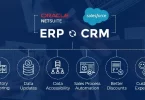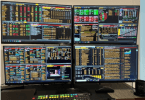The core of trading markets is the trades that happen in multitudes at every point in time. They keep the money flowing as blood flows through the heart of a person.
Such a vital activity has gotten more and more complex over the years due to various reasons. This is why it has gone the automation route, much like everything else of similar nature. Human traders have taken a step back and let automated trading software handle the minutiae of the job.
Charting the Past for Future Success
Trading in securities has a host of considerations and components to it, which must be kept track of and made use of for getting successful trades. One of those is market data. As much as real-time data is needed for trading, historical market data is also useful for automated trading software to function best for numerous reasons. Here, they are.
Backtesting
Performing a background check on a prospective job candidate is standard practice to understand who you are hiring exactly. It is the same with stocks as well.
Every company will have its path towards its position today, and studying that path will reveal plenty about its potential reliability as an investment. And a successful trading strategy must be able to grab successful stocks out of the scores being traded.
This is where historical market data comes into the picture. The software will gather heaps of data of all markets’ past performance it will be trading in. This includes the historical performance indicators of individual companies too.
A simulated trade is initiated by the traders based on the historical data to check for the effectiveness of their devised strategy. If the trading algorithm chooses the successful stocks in the process, that strategy can be considered viable.
Many such simulations are run to ensure this viability before it’s deployed in the real world. This process is called backtesting.
Statistical Analysis
Trading is all about how well you can analyze the required data. While this is intuitive for a human, an algorithm will have to be trained or programmed to do the same.
Most of the trading models for algo trading, such as Arbitrage, Trend-Following ones, Volume and Time-Weighted Average price, Mean Reversion, etc., rely on the successful analysis of past indicators to conduct profitable buys.
Since not all trades are of the same type, algo trading software needs to be programmed according to every trader’s specific requirements. The analysis model varies accordingly.
The algorithm, especially if it’s an AI/Machine learning-based one, will get better at this analysis over time and learn to make more accurate analysis of stocks and real-time data to make accurate future projections.
Multi-market Opportunities
Trading is now a globalized practice, where traders perform their trades across different markets. The Algo trading software must be up to the task of performing across markets based on a host of factors and strategies.
In such cases, historical data of every market where the trading will occur needs to be reviewed accurately for effective trade strategy implementation. Alongside market and company data, currency exchange trends across applicable markets must also be taken into account.
This comes of great help when a company is listed in multiple exchanges at the same time. There tend to be price differences in the two places where it is traded, which can be exploited to buy it at a lower price. It can then be sold on the same trading platform when the price goes up or other markets where its price is already higher.
Some Other Benefits
Historical data provides a slew of many other benefits such as:
- Cost Reduction: It is easy to choose stock of higher price when projections place it at improved performance in the future. This could be temporary and result in a loss instead. The Algo software with historical data is not prone to such mistakes and will choose the lower-priced but better-valued stocks.
- Instantaneous Picking: Algorithms are used in trading because they are fast and accurate. The best stock is automatically chosen at lightning pace because its history can be relied upon to indicate its success.
- Precise Timing: Some stocks perform best during specific periods only. Historical data is a great guide to showing that period for the algorithm to be ready when necessary.
The world of stock trading continuously changes; historical market data serves as a yardstick for automated trading software to keep up with the times and changes and perform at their best. You should choose a platform that lets you make the best of it.







